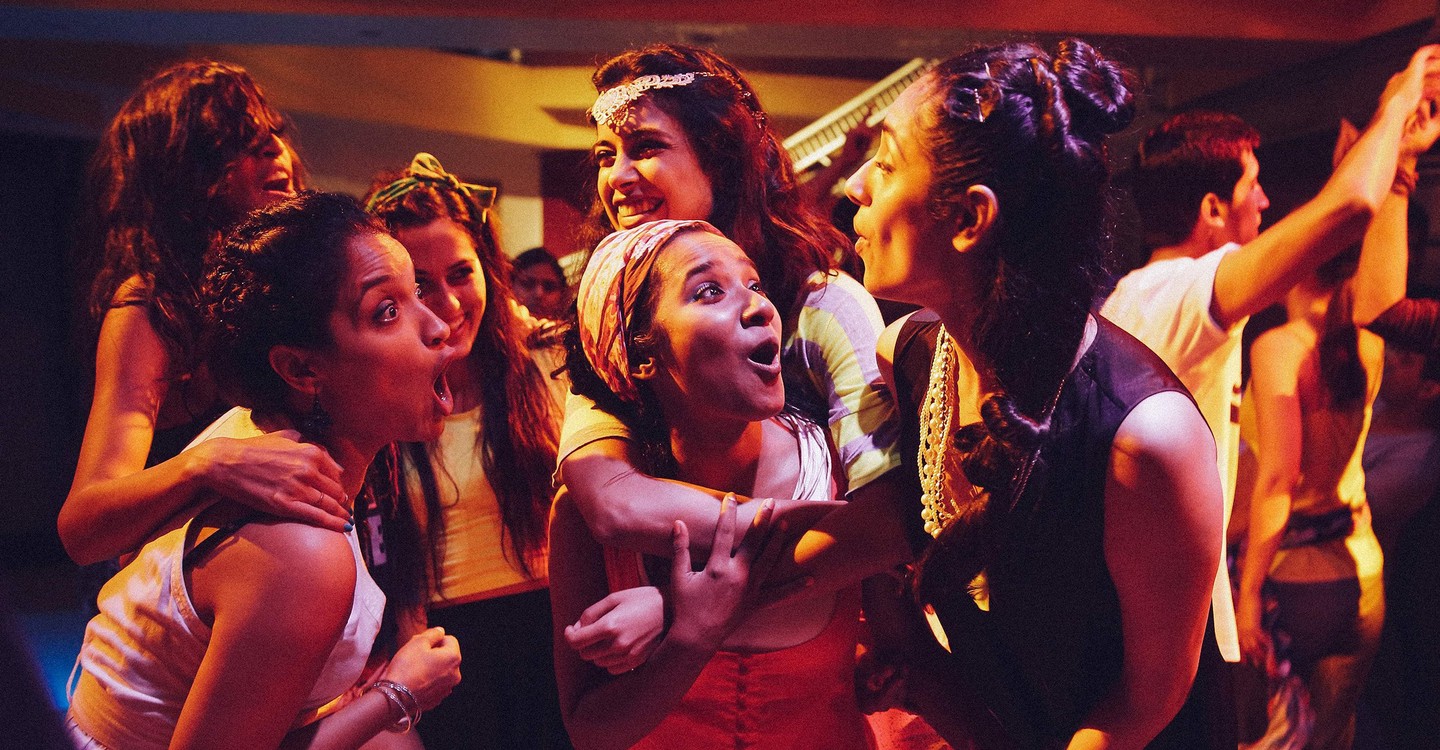By Rahul Desai
We know that Hindi film ‘heroines’ operate strictly within beats of the stories they occupy. They cry, they laugh, they sing, they recite lovely lines – but what about the moments in between?
Though the screenplay engineers certain personas, conflicts and resolutions for each of the seven women in Pan Nalin’s ‘Angry Indian Goddesses’, it doesn’t enforce a language upon them. Between the rules of their assigned roles, they laugh, rant, snort, smoke, drool, curse, sigh, interrupt one another, debate, discuss and scream. Their voices overlap (something that is dismissed as “un-movie-like” by most writers) and their cackles are untimed. Now, I’ve never been to (or gatecrashed) a bachelorette party or a girls-only reunion. But Nalin’s carefully assorted group of diverse ladies ensures I know what it feels like. They don’t act, and perhaps they don’t need to, which is exactly what distinguishes this crowd-pleaser from others. Their chemistry is unpracticed and charming – unlike the script that binds them together.
The premise, however, is flimsy – almost nervously mainstream. Edvard Grieg’s iconic “In The Hall of the Mountain King” picks up tempo as each stereotype is hastily introduced: Mad (Anushka Manchanda), the singer, is busy warding off obscene men at a concert; Pammi (Pavleen Gujral), the housewife, is busy warding off obscene Delhi men in a gym; Lakshmi (Rajshri Deshpande; standout), the maid, is busy warding off an obscene Goan horn-dog; Frieda (Sarah-Jane), the artist, is busy warding off sexist suits on a fairness-cream photoshoot; Jo (Amrit Maghera), the Anglo Indian actress, is busy warding off an obscene director. And finally, Su (Sandhya Mridul), the corporate hotshot, is busy breathing fire at daft male employees – after which she storms out, strips off her formals to reveal her bikini, and dives into the office pool. This one-dimensional setup montage is reminiscent of something straight out of a broad Madhur Bhandarkar movie.
Men suck, we get it, multiple times over. Talk about loudly setting the stage.
The activist lawyer Nargis (Tannishtha) enters later, after these old friends have gathered at Frieda’s cozy Goan abode for her upcoming wedding. The girls – and us viewers – don’t quite know who she’s getting married to. They just land up there, hoping to be surprised.
What follows are seven somewhat connected coming-of-age journeys interspersed with quarter-life crisis epiphanies – something, I suspect, Mr. Nalin gets too greedy with.
Perhaps five lives would have been sufficient to throw light onto the darkest corners of the gender-bias platform. The problem with so many in the house is that, invariably, Nalin has to quickly skim over some, and resort to convenient character tropes to justify a full-bodied exploration of others. One of them is made dreamy and nosy enough to interfere and point out others’ shortcomings. Though it’s clear that the puzzling presence of Su’s little girl is to accelerate the enlightenment process, you worry for her now-scarred childhood. These conflict-resolution-party cycles become predictable, and are broken only by an abrupt turn of events, tone, genre and overall mood in the final act.
Adil Hussain appears here – and shines – in a brief role, where he must represent every smirk, patronizing tone, taunt, judgment, prejudice and disapproving face of every patriarchal male on this planet.
The climax, which unabashedly plays to the gallery, also reflects the nation’s growing distrust and impatience with its systems. Since the ghastly Nirbhaya case, cinema has repeatedly resorted to vigilantism and lawlessness as the only means to attain closure. Revenge, it seems, has become the only form of justice – at least on the silver screen.
Make no mistake – this film could only have been about Indian women. It lays bare their inherent battles without being too gimmicky, pretentious or offering immediate solutions. But labelling this as a female-buddy flick or an Indian ‘Sex And The City’ would be doing a disservice to what these performers set out to achieve. It is about friendship, in the sense that its attributes are used to shed light on uncomfortable truths that tie together different personalities. Because at its core is the half-broken heart of an angsty, disruptive, take-no-prisoners crusader. And that is its selling point as well as weakness.







Leave A Comment
You must be logged in to post a comment.